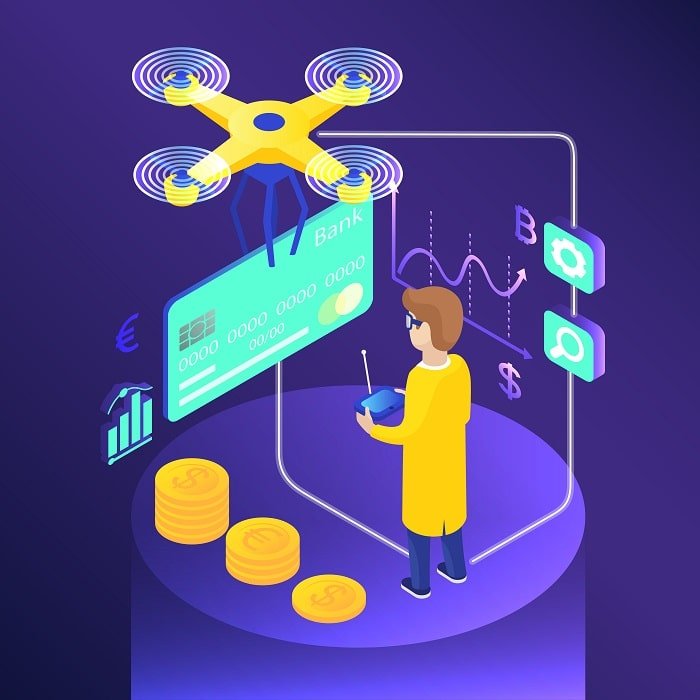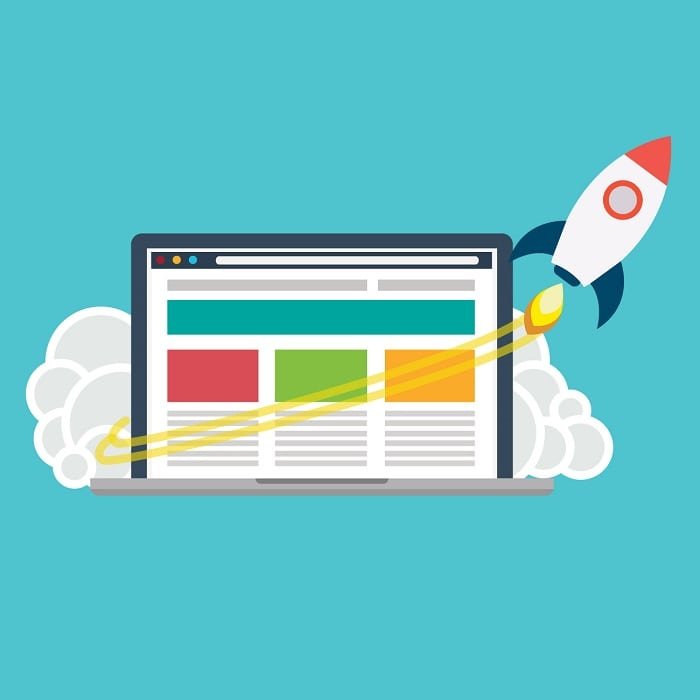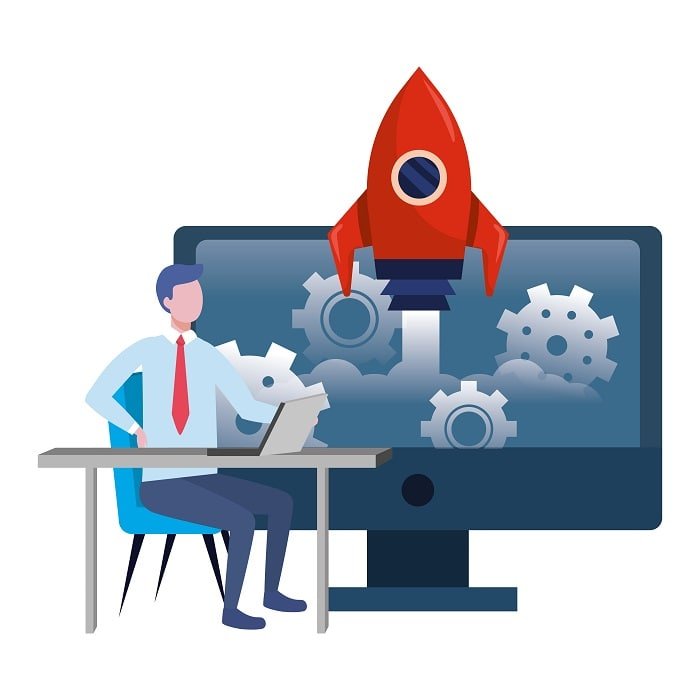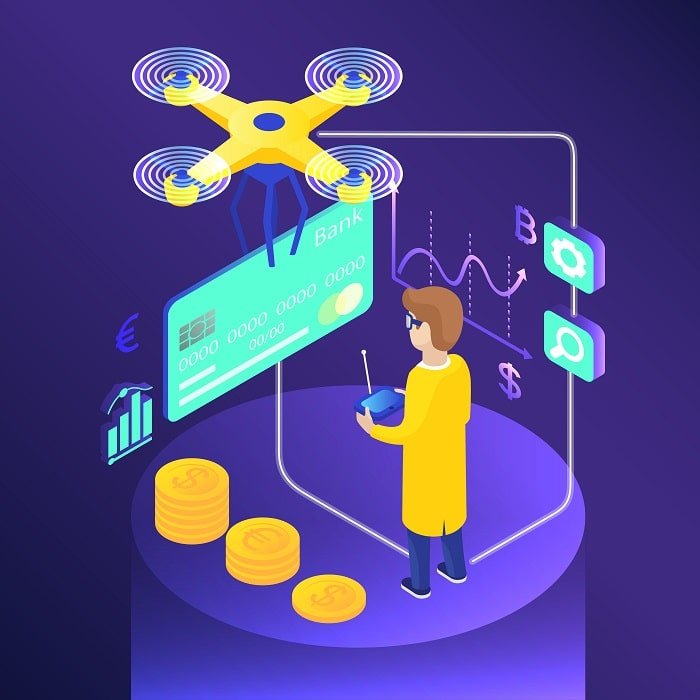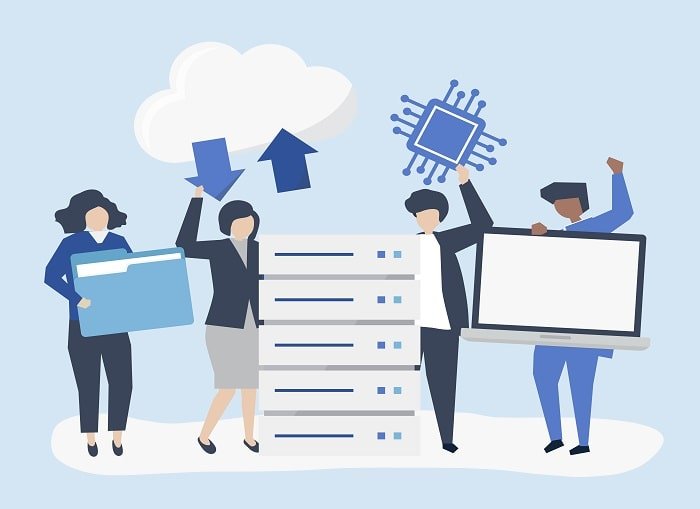
Artificial Intelligence (AI) is no longer just a futuristic concept; it has become a vital part of the business landscape. In fact, a staggering 37% of organizations have implemented AI in some form, and this number continues to grow rapidly. This statistic underscores the urgency for businesses to understand and leverage AI to stay competitive.
So, what exactly is AI? At its core, artificial intelligence refers to the simulation of human intelligence in machines programmed to think and learn like humans. This technology is significant because it enables businesses to automate processes, analyze vast amounts of data, and enhance decision-making.
In this article, we will explore the AI impact on businesses today, examining both the positive effects and the challenges that come with AI implementation. From improving efficiency to transforming customer experiences, AI is reshaping how companies operate and compete.
Understanding Artificial Intelligence
Definition of AI
Artificial Intelligence encompasses a variety of technologies that enable machines to perform tasks that typically require human intelligence. Key components of AI include:
- Machine Learning (ML): A subset of AI that allows systems to learn from data and improve their performance over time without being explicitly programmed.
- Natural Language Processing (NLP): This technology enables machines to understand and interpret human language, facilitating interactions between humans and computers.
- Robotics: The use of AI in robots allows them to perform complex tasks, often in environments that are hazardous or difficult for humans.
Types of AI
AI can be categorized into two main types:
- Narrow AI: Also known as weak AI, this type is designed to perform a specific task. Examples include:
- Chatbots: Used in customer service to answer queries.
- Recommendation Systems: Employed by platforms like Netflix and Amazon to suggest content based on user preferences.
- General AI: This type, still largely theoretical, would possess the ability to understand, learn, and apply intelligence across a wide range of tasks, similar to a human.
Historical Context
The evolution of AI technology has been remarkable. From its inception in the mid-20th century to the present day, AI has transitioned from simple rule-based systems to complex algorithms capable of deep learning. As businesses increasingly recognize the potential of AI, its role in operations has expanded significantly.
The Positive Impacts of AI on Business
Enhanced Decision-Making
One of the most significant benefits of AI is its ability to analyze large datasets and provide actionable insights.
- Predictive Analytics: AI can forecast trends and behaviors, allowing businesses to make informed decisions.
- Data-Driven Decision-Making: Companies can leverage AI to sift through data and identify patterns that inform strategic choices.
Increased Efficiency and Productivity
AI automates repetitive tasks, freeing up human resources for more strategic work.
- Robotic Process Automation (RPA): This technology automates routine tasks such as data entry and invoice processing.
- Automated Customer Service: AI-driven chatbots can handle customer inquiries, reducing the workload on human agents.
Improved Customer Experience
AI personalizes customer interactions, enhancing service delivery.
- AI-Driven Chatbots: These tools provide instant responses to customer queries, improving satisfaction.
- Personalized Marketing Campaigns: AI analyzes customer data to create targeted marketing strategies that resonate with individual preferences.
Cost Reduction
AI can significantly reduce operational costs through automation and optimization.
- Supply Chain Optimization: AI analyzes data to streamline supply chain processes, reducing waste and improving efficiency.
- Inventory Management: AI tools can predict inventory needs, minimizing excess stock and associated costs.
Innovation and New Business Models
AI fosters innovation and enables new business models.
- Subscription Services: Companies can leverage AI to create personalized subscription offerings based on customer behavior.
- AI-Driven Product Development: Businesses can use AI to analyze market trends and develop products that meet emerging needs.
Challenges and Risks of AI Implementation
Data Privacy and Security Concerns
As businesses adopt AI, they must navigate data privacy and security issues.
- GDPR Compliance: Companies must ensure that their AI systems comply with regulations like the General Data Protection Regulation (GDPR).
- Ethical Considerations: The use of AI raises ethical questions about data usage and customer consent.
Job Displacement
AI automation raises concerns about job loss.
- Workforce Reskilling: As AI takes over routine tasks, there is a growing need for reskilling and upskilling the workforce to adapt to new roles.
Bias and Fairness
AI systems can perpetuate biases present in training data.
- Discrimination in Hiring Algorithms: AI tools used in recruitment may inadvertently favor certain demographics over others.
- Biased Customer Service Interactions: AI-driven systems may not treat all customers equally, leading to dissatisfaction.
High Implementation Costs
The financial investment required for AI technology can be substantial.
- Costs Associated with AI Tools: Businesses must consider the expenses related to acquiring and maintaining AI systems.
- Training and Maintenance: Ongoing training for staff and system maintenance can add to the overall costs.
AI in Different Industries
Healthcare
AI is transforming patient care, diagnostics, and drug discovery.
- AI in Medical Imaging: AI algorithms can analyze medical images to assist in diagnosing conditions.
- Predictive Analytics for Patient Outcomes: AI can predict patient outcomes based on historical data, improving treatment plans.
Finance
AI plays a crucial role in fraud detection, risk assessment, and algorithmic trading.
- AI-Driven Credit Scoring: Financial institutions use AI to assess creditworthiness more accurately.
- Robo-Advisors: These AI tools provide automated investment advice based on individual financial goals.
Retail
AI enhances inventory management, customer personalization, and supply chain efficiency.
- AI-Driven Recommendation Engines: Retailers use AI to suggest products based on customer behavior.
- Demand Forecasting: AI analyzes sales data to predict future demand, optimizing inventory levels.
Manufacturing
AI impacts predictive maintenance, quality control, and production optimization.
- Smart Factories: AI technologies enable real-time monitoring and optimization of manufacturing processes.
- IoT Integration: AI works with IoT devices to enhance operational efficiency.
Marketing
AI revolutionizes targeted advertising and customer engagement.
- AI-Driven Content Creation: Businesses use AI to generate personalized marketing content.
- Sentiment Analysis: AI analyzes customer feedback to gauge public sentiment about products and services.
Future Trends in AI and Business
AI and the Workforce
The relationship between AI and human workers is evolving.
- Collaboration Between Humans and AI: Businesses are increasingly adopting hybrid work environments where humans and AI work together.
- Enhanced Productivity: AI can assist workers in decision-making, leading to improved outcomes.
Ethical AI
The importance of ethical considerations in AI development is growing.
- Transparency: Businesses must ensure that AI systems are transparent in their operations.
- Accountability: Companies need to take responsibility for the decisions made by AI systems.
AI in Decision-Making
AI will increasingly be integrated into strategic decision-making processes.
- AI-Driven Business Intelligence Tools: These tools provide insights that inform strategic planning.
- Scenario Modeling: AI can simulate various business scenarios to aid in decision-making.
AI and Sustainability
AI can contribute to sustainable business practices.
- Energy Management: AI optimizes energy usage in operations, reducing costs and environmental impact.
- Waste Reduction: AI analyzes processes to identify areas for waste reduction.
How to Leverage AI for Business Success
Assessing AI Readiness
Businesses should evaluate their readiness for AI adoption.
- Infrastructure Assessment: Determine if existing infrastructure can support AI technologies.
- Data Quality Evaluation: Ensure that data is accurate and relevant for AI applications.
Developing an AI Strategy
Creating a comprehensive AI strategy aligned with business goals is essential.
- Setting Clear Objectives: Define what the business aims to achieve with AI.
- Identifying Use Cases: Determine specific areas where AI can add value.
Investing in Training and Development
Workforce training is crucial to maximize AI benefits.
- Upskilling Programs: Implement training programs to equip employees with the necessary skills.
- Partnerships with Educational Institutions: Collaborate with educational organizations to provide training resources.
Monitoring and Measuring AI Impact
Businesses should track the effectiveness of AI initiatives.
- Key Performance Indicators (KPIs): Establish KPIs to measure the success of AI implementations.
- Continuous Improvement Processes: Regularly assess and refine AI strategies based on performance data.
Conclusion
In summary, the AI impact on business is profound, offering numerous benefits while also presenting challenges. From enhancing decision-making to improving customer experiences, AI is reshaping how companies operate. However, businesses must also navigate issues such as data privacy, job displacement, and implementation costs.
As you explore AI solutions, consider how they can enhance your operations and customer experiences. Embracing AI is not just about keeping up with technology; it’s about driving innovation and efficiency in your business strategy. The future of AI in business is bright, and those who adapt will thrive in this new landscape.










